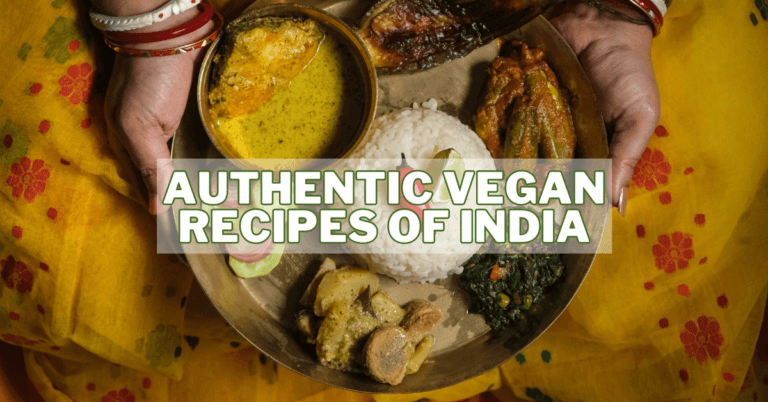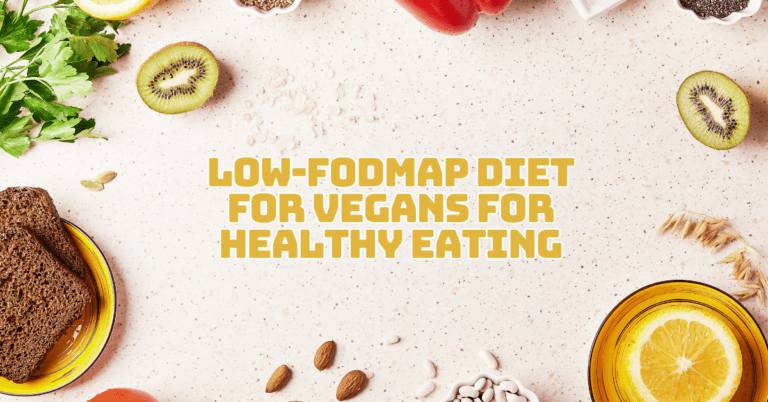Long-Term Health Effects Of A Vegan Diet

Long-Term Health Effects Of A Vegan Diet
Adopting a vegan diet can have profound effects on long-term health. It promotes a lifestyle that emphasizes the consumption of plant-based foods.
What are the long-term health effects of a vegan diet? This question emerges as more individuals become aware of the ethical, environmental, and health benefits of a vegan lifestyle.
This blog will delve into the various health impacts of a vegan diet over the years. From reduced risks of chronic diseases to potential nutritional deficiencies, we will explore the scientific evidence and expert opinions to provide a comprehensive overview.
Whether you're considering transitioning to a vegan diet or have already embraced this lifestyle, understanding the long-term health effects is crucial for making informed dietary choices.
Let's go on this fascinating journey to learn more about the long-term effects of a vegan diet on your health.

What Is Ethical Veganism?
Ethical veganism is a holistic lifestyle driven by animal welfare and rights concerns. It involves abstaining from animal products in all facets of life, from diet to clothing and cosmetics.
Rooted in principles of compassion and social justice, ethical vegans advocate for the humane treatment of animals and often engage in activism to raise awareness and promote a cruelty-free lifestyle. Let’s explore some key points of ethical veganism:

1. Animal Welfare And Rights
Ethical vegans defend animals' intrinsic value and rights, advocating humane treatment and opposing exploitation.
Rooted in compassion and justice, this philosophy drives activism and advocacy. It aims to establish a world where animals are honoured and shielded from harm, transcending individual choices for a collective ethical stance. Their tireless efforts inspire change.
2. Avoidance Of Animal Products
Ethical vegans abstain from animal products in their diet and lifestyle, eschewing items like leather, wool, silk, and cosmetics tested on animals.
This conscientious choice reflects their commitment to minimizing harm to animals and promoting cruelty-free alternatives, aligning with their values of compassion and respect for all living beings. Their actions reflect compassion and ethical integrity in daily life.

3. Activism And Advocacy
Many ethical vegans view their lifestyle as activism, raising awareness about animal cruelty, promoting compassionate alternatives, and supporting legislative measures to improve animal welfare.
Through advocacy, they strive to create a more humane world, inspiring others to join the fight for animal rights and fostering positive change in society. Their passion fuels a meaningful shift in animal welfare advocacy worldwide.

4. Environmental Sustainability
Ethical vegans acknowledge animal agriculture's environmental impact, opting for a plant-based diet and lifestyle to diminish their ecological footprint and combat environmental degradation.
By embracing sustainable practices, they contribute to preserving the planet's health, aligning with their values of compassion and responsibility towards the environment and future generations. Their commitment to sustainability extends beyond personal choices.
5. Compassion And Justice
Ethical veganism is anchored in compassion, justice, and respect for all living beings, embodying a commitment to moral principles.
This philosophy seeks alignment between personal values and actions, striving to foster a world characterized by empathy and fairness.
Ethical vegans endeavour to create a more compassionate and sustainable global community by advocating for the well-being of animals and the planet.
What Is The Basic Nutrition Of A Vegan?
A carefully organized vegan diet can supply all nutrients for optimal health. Here’s a breakdown of the basic nutrition of a vegan:
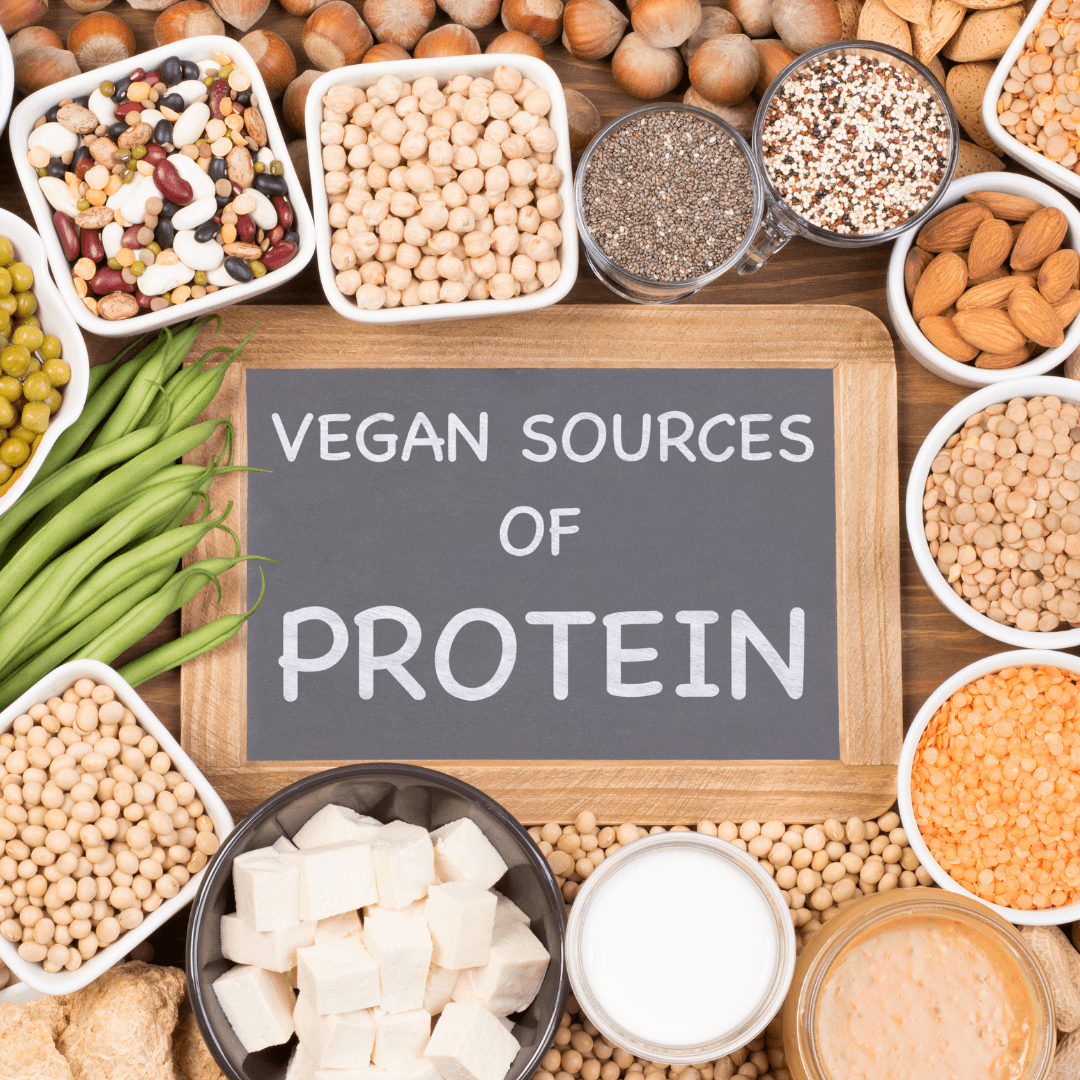
1. Vegan Protein
Legumes (such as beans, lentils, and chickpeas), tofu, tempeh, seitan, nuts, and seeds are rich protein sources in a vegan diet. Including a variety of these foods ensures adequate intake of essential amino acids.
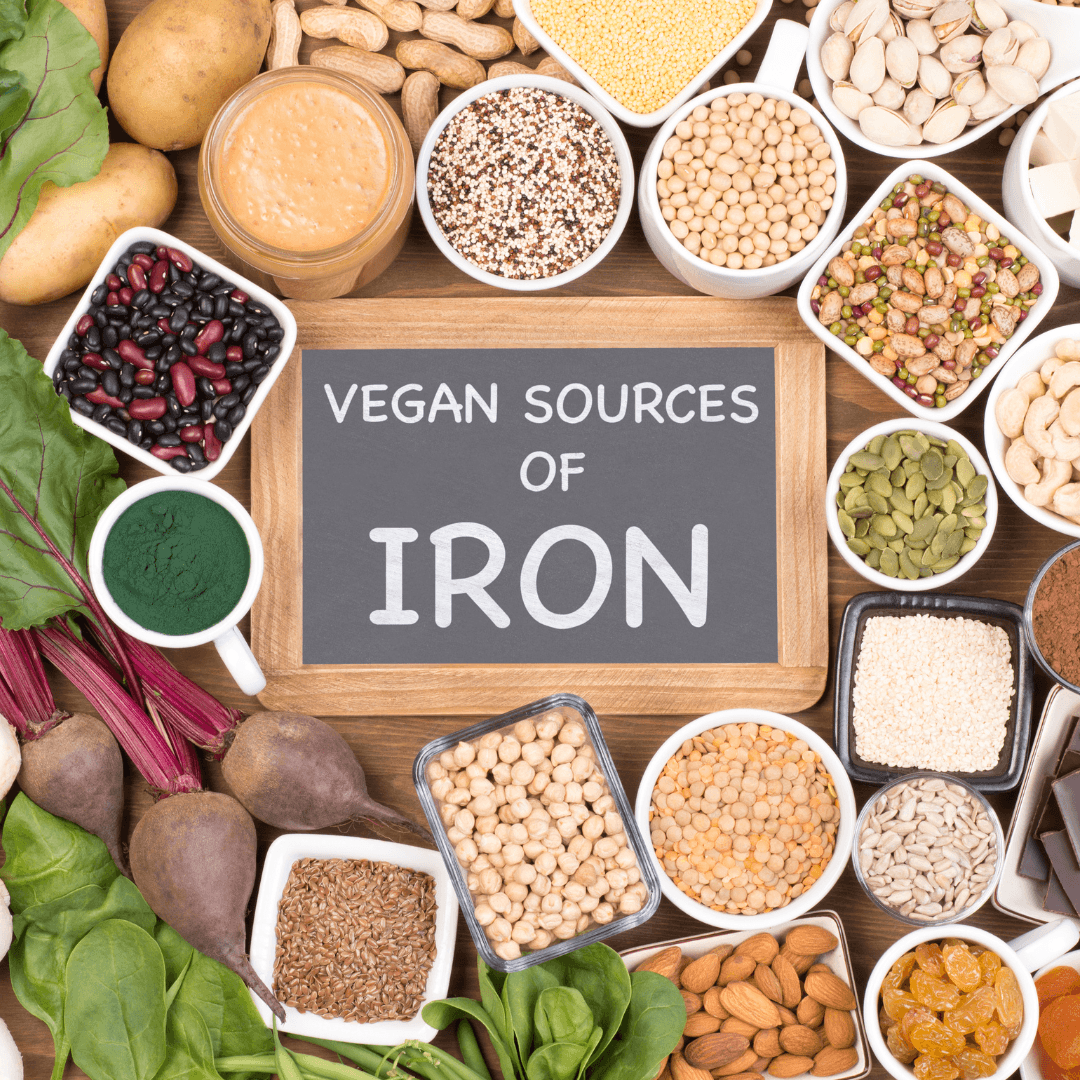
2. Plant-Based Sources Of Iron
Plant-based sources of iron include lentils, beans, tofu, spinach, fortified cereals, and quinoa. Consuming vitamin C-rich foods alongside iron-rich foods enhances iron absorption.

3. Vegan Sources Of Calcium
Vegan sources of calcium include fortified plant milk, tofu, almonds, tahini, leafy greens (such as kale and bok choy), and calcium-set tofu. Incorporating these calcium-rich foods ensures nutritional adequacy.

4. Vegan Vitamin B12
Since vitamin B12 is primarily found in animal products, vegans should consume fortified foods like plant milk, breakfast cereals, and nutritional yeast or take a B12 supplement to meet their needs.
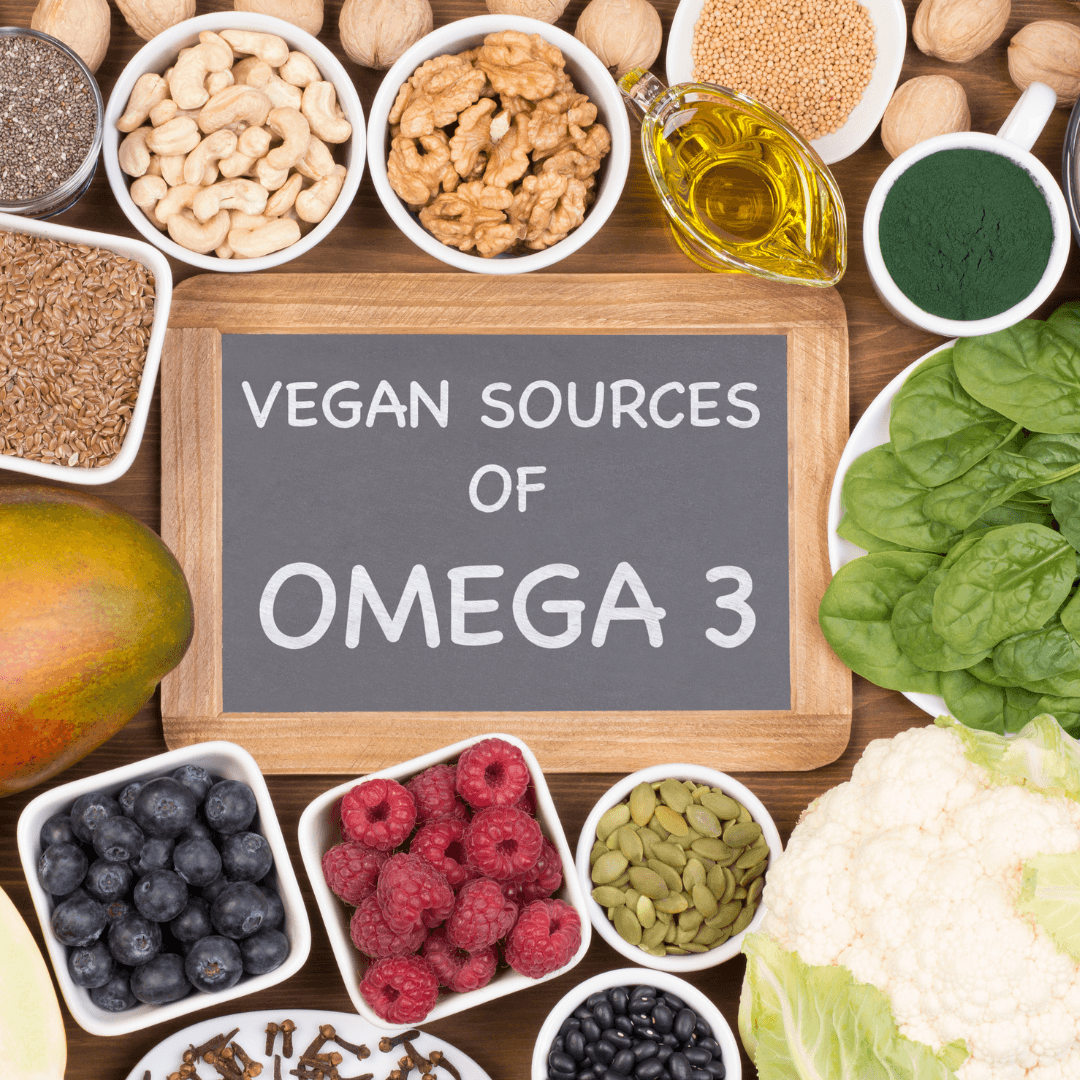
5. Vegan Sources Of Omega-3 Fatty Acids
Omega-3 fatty acids significantly impact heart health and brain function. Flaxseeds, hemp seeds, walnuts, chia seeds, and algae-based supplements offer rich sources of omega-3 fatty acids, specifically alpha-linolenic acid (ALA).

6. Plant-Based Vitamin D
While sunlight is a natural source of vitamin D, vegans can also obtain it from fortified foods like plant milk, breakfast cereals, and supplements.

7. Vegan Sources Of Zinc
Legumes, nuts, seeds, whole grains, and fortified foods are plant-based sources of zinc. Adequate intake is essential for immune function and wound healing, and maintaining zinc levels supports overall immune system resilience.

8. Vegan-Friendly Sources Of Iodine
Sea vegetables (such as nori and seaweed), iodized salt, and fortified foods are vegan-friendly sources of iodine, which is crucial for thyroid health. A balanced intake of these iodine-rich foods supports thyroid function.

9. Fibre
By encouraging feelings of fullness, fibre helps regulate blood sugar levels and may help with weight management.
Fruits, vegetables, whole grains, legumes, nuts, and seeds are rich in fibre, which supports a healthy digestive system and a feeling of fullness.

10. Antioxidants And Phytonutrients
A diverse array of colourful fruits and vegetables provides antioxidants and phytonutrients, which have various health benefits and may reduce the risk of chronic diseases. Incorporating antioxidant-rich foods supports the body's defence against cellular damage.
Long-Term Health Effects Of A Vegan Diet
When carefully thought out, a vegan diet can have favourable long-term health impacts, such as a decreased risk of heart disease, several malignancies, and type 2 diabetes.
Yet, consuming enough essential nutrients, such as vitamin B12, iron, calcium, omega-3 fatty acids, and protein, on a vegan diet can occasionally be difficult.
It can be easier to meet dietary needs by speaking with a dietician or other healthcare expert. Following a vegan diet can have the following specific long-term health effects:
1. Heart Health
Vegan diets, rich in fruits, vegetables, nuts, seeds, and whole grains, are linked to improved heart health, manifesting in lower blood pressure, cholesterol levels, and body weight.
The abundance of plant-based foods in these diets contributes to reduced risk factors for heart disease, offering a holistic approach to cardiovascular wellness.
By prioritizing nutrient-dense, fibre-rich foods, individuals adhering to a vegan lifestyle may experience long-term benefits that support heart health and overall well-being.
This dietary pattern underscores the importance of plant-centric nutrition in mitigating cardiovascular risk factors and promoting cardiovascular health throughout a lifetime.
2. Cancer Risk
The emphasis on fruits, vegetables, and fibre in vegan diets may underpin the protective effect against cancer development.
Long-term health effects of a vegan diet include potential risk reduction for certain cancers, notably colorectal cancer, according to research findings.
By consistently consuming a plant-based diet rich in these cancer-fighting nutrients, individuals may experience lasting benefits in mitigating cancer risk factors over time.
This evidence underscores the significance of adopting a vegan dietary pattern as part of a proactive approach to long-term health and cancer prevention.
It highlights the role of nutrition in promoting overall well-being and reducing the incidence of chronic diseases.
3. Type 2 Diabetes
Studies showing greater insulin sensitivity have linked a vegan diet to a lower incidence of type 2 diabetes in the long run.
This positive outcome may stem from the lower consumption of saturated fats and the increased intake of fibre and plant-based foods characteristic of vegan diets.
By prioritizing nutrient-rich plant foods, individuals can potentially mitigate diabetes risk factors over time, offering a proactive strategy for long-term health management.
These findings underscore the importance of dietary choices in influencing metabolic health and highlight the potential of vegan diets as a preventive measure against type 2 diabetes, contributing to overall well-being and disease prevention.
4. Bone Health
One of the long-term health effects of a vegan diet is the potential for decreased calcium intake, which might lead to lower bone mineral density and an elevated risk of fracture.
This raises questions concerning bone health. However, vegans can achieve adequate calcium intake with meticulous planning and incorporation of calcium-rich plant sources like tofu, fortified plant milk, leafy greens, and nuts.
By prioritizing these nutrient-dense foods, individuals can safeguard their bone health over time, mitigating concerns associated with vegan diets.
This underscores the importance of intentional dietary choices and emphasizes the feasibility of maintaining optimal bone health while adhering to a vegan lifestyle for long-term well-being.
5. Nutrient Considerations
Vegans may need to incorporate fortified foods or supplements into their diet to address potential deficiencies in essential nutrients.
The long-term health consequences of a vegan diet require careful monitoring of nutrient consumption, especially for important elements that are commonly found in large amounts in animal products.
These consist of protein, iron, calcium, vitamin B12, and omega-3 fatty acids. By thoughtfully integrating fortified sources and supplements, people can maintain a vegan lifestyle while guaranteeing an adequate nutrient intake that supports general health and well-being.
This underscores the importance of mindful dietary planning and supplementation in addressing nutrient considerations associated with long-term vegan diets for optimal health outcomes.
6. Weight Management
By promoting satiety and reducing calorie intake, vegan diets offer a sustainable approach to weight management, contributing to overall health and well-being.
The long-term health effects of a vegan diet include its potential role in weight management, which is attributed to lower calorie and saturated fat content coupled with higher fibre intake compared to omnivorous diets.
This dietary pattern may facilitate weight loss or weight maintenance, thereby lowering the risk of obesity-related ailments like heart disease and type 2 diabetes.
These findings underscore the benefits of adopting a plant-based dietary pattern as a comprehensive strategy for long-term weight control and chronic disease prevention.
7. Digestive Health
Over time, a vegan diet can improve digestive health because of its high fibre content, which supports regular bowel movements and a healthy digestive tract.
By promoting gastrointestinal motility, vegan diets reduce the risk of constipation and may help prevent certain gastrointestinal disorders such as diverticulosis.
The abundance of fibre-rich foods like fruits, vegetables, whole grains, and legumes in vegan diets fosters a favourable gut environment, enhancing overall digestive function and well-being.
This underscores the importance of dietary fibre in maintaining optimal digestive health and highlights the benefits of adopting a plant-based nutritional pattern for long-term gastrointestinal wellness.
8. Inflammation
The effects of a vegan diet extend to reduced inflammation within the body, a benefit commonly associated with plant-based eating patterns.
This anti-inflammatory property may lessen the likelihood of developing long-term inflammatory diseases like inflammatory bowel disease, rheumatoid arthritis, and cancer.
Plant-based foods high in antioxidants, phytochemicals, and anti-inflammatory substances are the main source of these nutrients, which help vegans regulate inflammatory pathways and improve their general health and well-being.
These results highlight the promise of plant-based diets as a dietary strategy for disease prevention and long-term inflammation control, providing a comprehensive method of reducing the risk of chronic inflammatory illnesses over time.
9. Longevity
Long-term adherence to a vegan diet has been linked to potential longevity benefits, with some studies indicating a reduced risk of premature death from all causes.
This correlation could arise from the general health benefits associated with plant-based diets, including decreased cholesterol and saturated fat intake, increased consumption of antioxidants and fibre, and reduced risk of chronic illnesses, including heart disease and cancer.
People who follow a vegan diet have the potential to live longer and improve their general health by consuming more plant-based meals.
These results demonstrate the potential of plant-based diets as a nutritional approach to promote longevity and long-term health.
10. Environmental Impact
Vegan diets are associated with a lower environmental footprint than diets rich in animal products.
A vegan diet has long-term health benefits beyond personal well-being and favourable environmental implications.
Veganism supports conservation and ecological sustainability by lowering the need for animal agriculture.
This dietary choice helps mitigate greenhouse gas emissions, conserves water resources, and reduces deforestation associated with livestock farming.
Embracing veganism benefits personal health and contributes to broader ecological preservation, highlighting the interconnectedness of dietary choices and environmental sustainability for long-term well-being.
11. Ethical Consideration
Long-term adoption of a vegan diet often extends beyond health considerations to encompass ethical motivations.
Concerns about animal welfare and the effects of animal agriculture on the environment led many people to adopt a vegan lifestyle.
By aligning dietary choices with personal values, individuals contribute to overall well-being and satisfaction with lifestyle choices.
Veganism reflects a commitment to compassion towards animals and the planet, promoting harmony and integrity in one's actions.
While not directly tied to health outcomes, ethical considerations play a significant role in shaping dietary decisions and fostering a sense of fulfilment in contributing to positive social and environmental change over time.
FAQ
1. Why Vegans Don’t Eat Fish?
Answer: Vegans abstain from consuming fish for several reasons. Firstly, it aligns with the fundamental principle of veganism to avoid all forms of animal exploitation, including fishing practices that harm marine life.
Additionally, fish feel pain and suffer just like land animals, contradicting vegan values of compassion and non-violence towards all sentient beings.
Moreover, commercial fishing often involves unsustainable practices that damage marine ecosystems and contribute to overfishing, threatening biodiversity and ocean health.
By excluding fish from their diet, vegans uphold their commitment to ethical, environmental, and compassionate living, promoting a more sustainable and humane way of eating.
2. Why Vegans Don't Eat Eggs?
Answer: Vegans avoid consuming eggs due to ethical, health, and environmental concerns. In industrial egg production, hens endure confined and often cruel conditions, contradicting vegan principles of compassion and non-exploitation of animals.
Furthermore, the egg industry contributes to environmental issues such as pollution and resource depletion.
Eggs provide health dangers due to their high cholesterol and saturated fat content, which has been connected to heart disease and other conditions.
By excluding eggs from their diets and aligning their choices with compassion, health, and sustainability, vegans promote animal welfare, environmental sustainability, and healthier eating habits.
3. What Is A Vegan Who Eats Fish?
Answer: A person who consumes fish but otherwise follows a vegan diet is often called a “pescatarian” rather than a strict vegan.
While pescatarians avoid meat and poultry, they include fish and seafood. This dietary choice may stem from personal preferences, health considerations, or ethical beliefs.
However, it’s important to note that pescatarians diverge from the vegan principle of avoiding all animal products by including fish in their diets.
Despite this difference, pescatarians still contribute to reducing their overall animal product consumption compared to omnivorous diets, promoting environmental and health benefits.
Conclusion
In conclusion, the long-term health effects of a vegan diet are multifaceted and impactful. A vegan diet has been linked to several health benefits, such as a lower risk of heart disease, several malignancies, and type 2 diabetes, according to research.
However, attention to nutrient intake is crucial to ensure optimal health, particularly for nutrients commonly found in animal products.
Despite these considerations, vegan diets offer benefits for weight management, digestive health, inflammation reduction, and potential longevity.
By aligning dietary choices with personal values and health goals, individuals can experience the comprehensive and enduring benefits of a plant-based lifestyle, affirming the importance of the long-term health effects of a vegan diet.
I trust you enjoyed reading the article on the Long-Term Health Effects Of A Vegan Diet. Please stay tuned. More blog posts will be posted very shortly.
JeannetteZ
>>>Please click here to read my Vegan Travel Guides To World Destinations<<<
>>>Want To Learn How To Create Delicious, Cruelty-Free, Healthy AND 100% Vegan Meals? Try These Awesome Vegan Cooking Courses With A Free 7-DAY MEMBERSHIP<<<
Your Opinion Is Important To Me
Do you have thoughts, ideas, or questions? I would love to hear from you. Please leave me your questions, experiences, and remarks about the Long-Term Health Effects Of A Vegan Diet in the comments section below. You can also reach me by email at Jeannette@LivingTheVeganLifestyle.org.
>>>Please click here to read more about the Vegan Diet on Wikipedia<<<
Disclosure
This post may contain affiliate links. I earn from qualifying purchases as an Amazon Associate and other affiliate programs. Please read my full disclosure.
Here are links to some of my favourite articles:
Vegetarian vs Vegan – Which Is Healthier?



